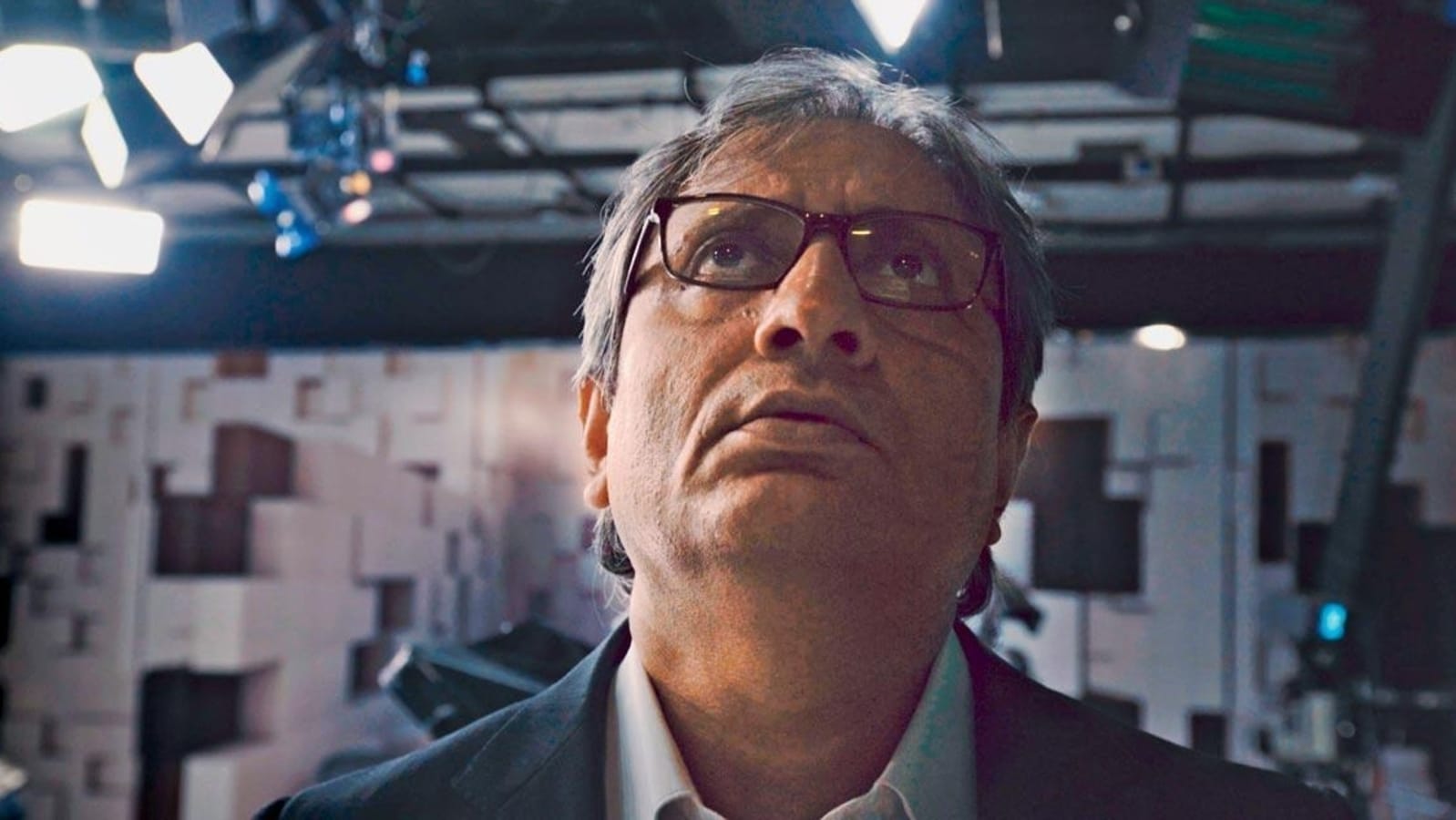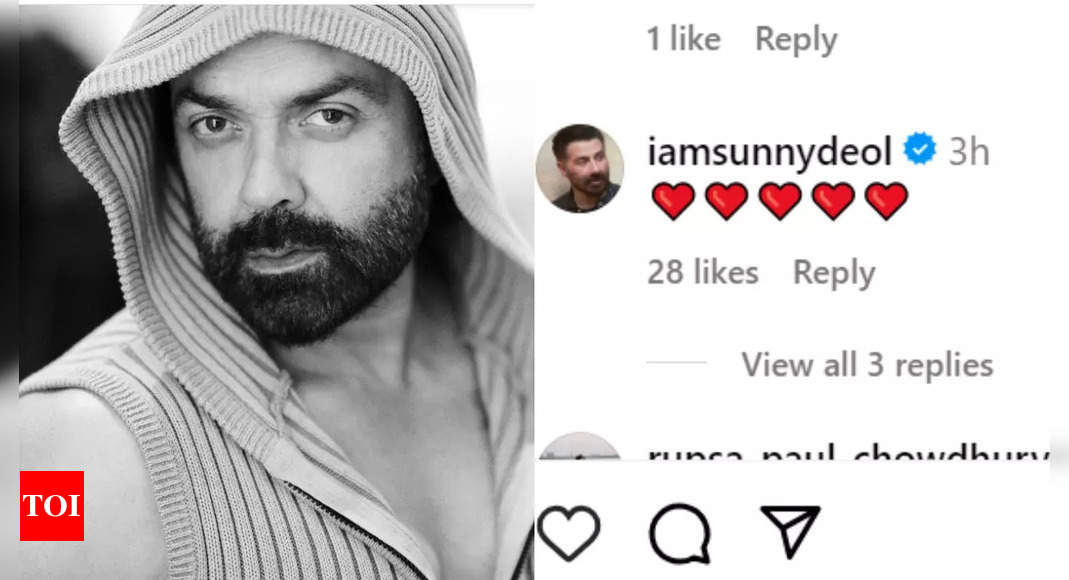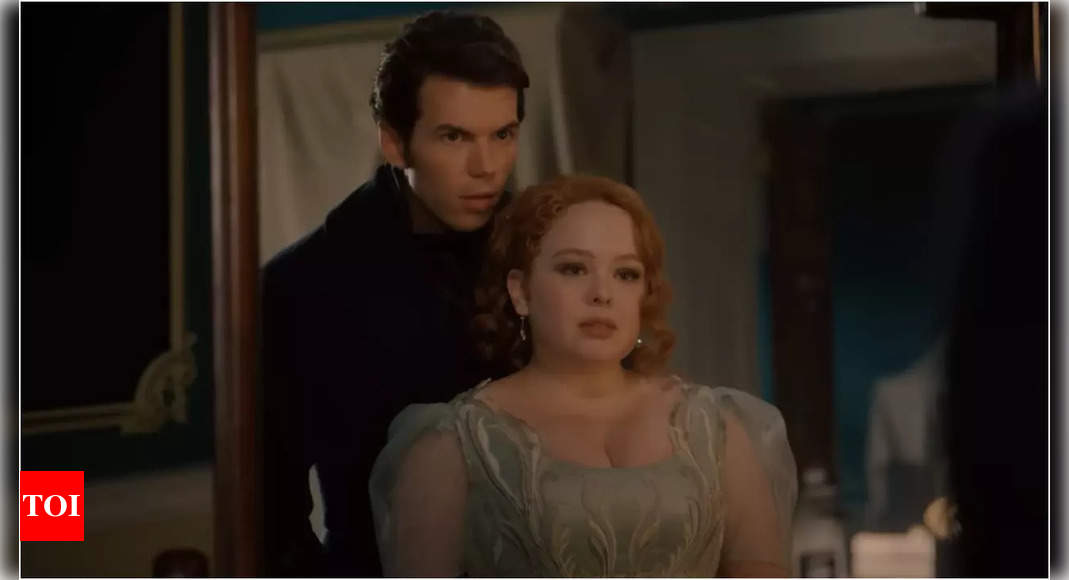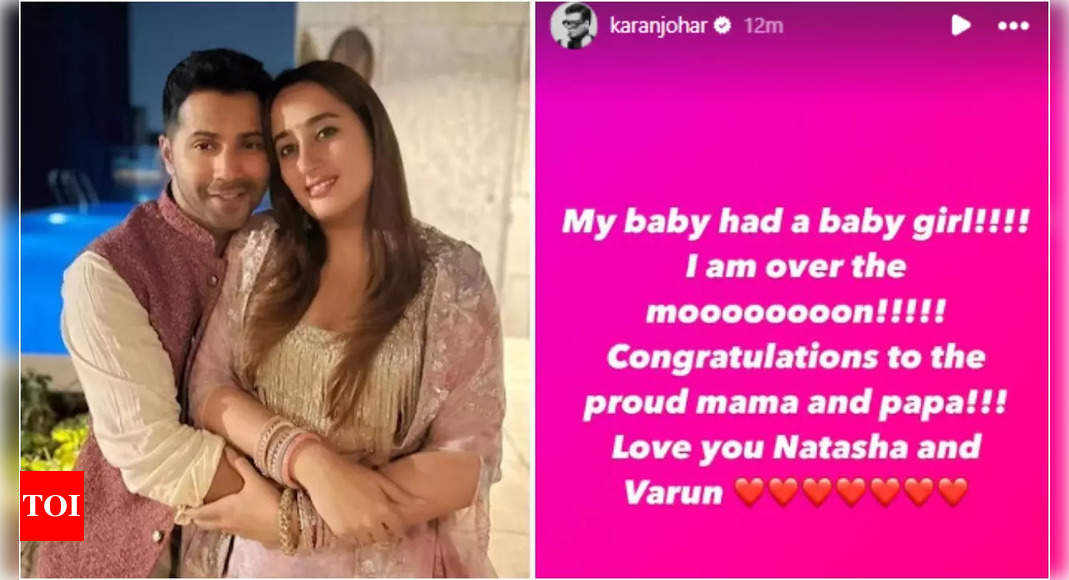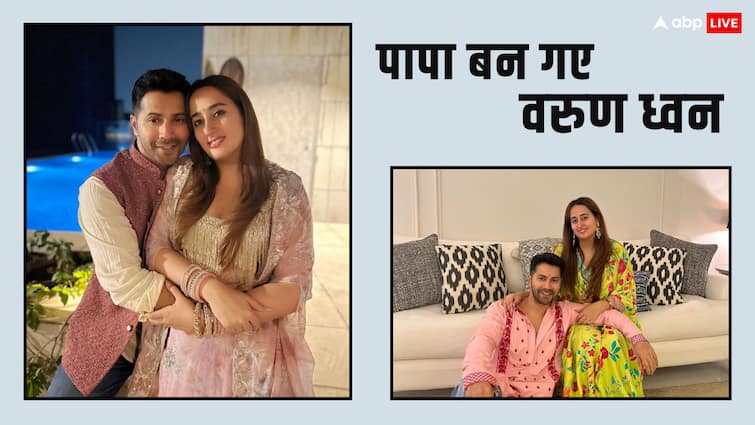Vinay Shukla’s Peabody Award-winning documentary While We Watched finally sees the light of the day in India. The film, which documents the life of Ramon Magsaysay Award-winning journalist Ravish Kumar and the state of broadcast news in India today, is now streaming on MUBI. (Also Read – Marching in the Dark review: Compelling doc sheds light on Indian farmer widows)
In an exclusive interview, Vinay and Ravish talk about the journey of making and releasing the documentary, their take on mainstream television news today, and how relevant and urgent While We Watched is right now. Excerpts:
While We Watched comes across as a portrait of crushing loneliness? Vinay, why did you pick this aspect from Ravish’s multifaceted life as the focus of your documentary?
Vinay: When I started making films 15 years ago, I was in a period full of idealism, in which everything seemed possible, in 2008-09. There was a currency of larger political ideas being spoken on a large scale. People were discussing in drawing rooms how politics should be. Cut to 2019-20, when the film was shot, I was feeling a lot of dejection and loneliness myself. It was just by seeing how society around me was shaping up, be it Bollywood films, television news, or the political scene at large. I felt increasingly lonely and marginalised.
When I came across Ravish doing this broadcast, it felt here was a news anchor who was also going through the same loneliness, who was disagreeing with the world around him, and he was also wondering if he’s relevant to his society anymore. Which I also keep thinking about quite often, that I’m making documentaries in a country where people makes films about song and dance. Should I be doing what I’m doing? So I identified with that loneliness, that contemplation, that introspection, that soul-searching phase.
Ravish is a very eloquent news anchor who says over 5,000 words every day when he’s on camera. But I also wanted to capture who is the person behind the camera. How is it that journalists put their stories together. What do they do when they’re off camera. And I discovered that Ravish is very funny, but he’s very introspective and always fighting with larger ideas. I felt that despair has a constant presence in his life and I tried to bring that to the film.
Ravish, do you agree with Vinay’s gaze on you? Do you see yourself as a lonely figure?
Ravish: I assumed that most of the shots in the film would be of me going out into the crowd, of them reacting to me, whether the reactions are good, bad or ugly. I could never guess that the aspect of life that I live more would make it to this film. It says a lot about the director that he’d have tried to control the temptation of showing stuff that has a lot of action. But when I introspected, I realised that it’s just that one hour when I’m around people on the camera. Otherwise most of my life, I live alone.
I don’t want to say if I agree with him or not. I always maintained that I don’t want to give my opinion on this film, whether it’s good or bad. It was difficult to examine how I felt when I watched the film for the first time. Because the loneliness that I used to feel, which I felt I’d come past then, began running through my veins again. Then I felt the filmmaker has seen me for who I am, and not how I’m perceived. But he’s not influenced by perception at all.
By sticking to that gaze, Vinay has established, for not just me, but for any journalist, that this is the only process of working. You’re not a hero when you’re working. You’re a labourer when you’re working. And being a labourer is lonely. You have to concentrate, keep it together, wrestle with yourself, contain your mood. Even if you’re surrounded by a hundred people, you’re still working alone.
Vinay, you won a Peabody Award for the documentary’s “poignant portrait of everyday courage in the face of radicalised politics and publics.” Do you believe you sourced that courage from Ravish himself, given that you spent so much time observing him closely?
Vinay: I think Ravish has got all the courage. It’s me, not him. If I’d have made a film on say, Ravish’s take on climate change, people would’ve still called me out for not taking names. They’d say that he takes names, so why can’t you? I’m trying to tell Ravish’s story, and all the courage is his. Not taking the names that Ravish does would’ve been fundamentally dishonest. I’ve tried to bring honesty to the portrait. What I was trying to tell was the story of an individual resolve. The film starts with, ‘When you find yourself alone, whose voice do you hear?’ I was trying to build a story around that, of somebody who was trying to find the right answer, when they were in the middle of everything. You don’t know your ratings, you don’t know the place you’re working at because everything is being eroded, your personal life is under attack, your colleagues are leaving. In times like those, what is your North star? Which direction would you walk in?
Recently, Sonali Bendre played an ethical editor in Vinay Waikul’s ZEE5 show The Broken News. She tells her younger colleague, “Never do journalism thinking that you were wronged, but do it thinking whether you entered journalism to make everything right.” Ravish, do you agree with that assessment?
Ravish: We often try to condense our profession into one or two ‘brilliant’ lines. More important than who has come into journalism, why and how they’ve come into it, is that where they’ve come, what is the structure, the process of that space? If that’s fine, whoever comes into it with whatever intention, can’t harm this profession much. For instance, in a metro, there are thousands of passengers who get down at different stations. There are a few who come into this profession as a stepping stone to get into politics, some come into it to make ₹3-4 crore via wrongful means. But the issue at hand is that the metro and the stations must operate smoothly. The infrastructure of journalism has ended. That’s more of a concern for me.
You have to ask yourself whether you want to be a part of the celebration of journalism. There are so many faceless, nameless journalists who have spoken the truth in the face of wrong, lost their jobs, gone to jail. They’ve risked their lives or their family’s lives. Their experience shouldn’t be reduced to a film dialogue. It makes for a good scene, but the situation is more complex. Some journalists do the wrong thing very easily, while some don’t do it even after a lot of difficulty.

You also say in the documentary that we’ve come to a crossroads where we have to pick between job and journalism. Do you believe that holds true even for digital journalism or there’s more leeway there?
Ravish: No, there’s definitely more leeway there, but the world is very different. There’s no provision for experienced resources like there is in a newsroom. There’s more joy there, but you only keep applauding whatever you’ve created. There are more voices, more collaborators in a newsroom. But I don’t regret what I said, and I don’t believe the time has come to review my statement. Whatever path we’ve chosen, we’ve managed to sustain it so far. All this while, our very own Sachin Tendulkar has quit cricket and done the advertisement of an inverter. We’ve not reached that stage yet. And I’m not just referring to myself here. There are many more journalists who still go out and report in the elections today.
Do you miss broadcast news? Now that you have some distance from it, have you never considered going back to it?
Ravish: I certainly don’t think I can go back to it. Which newsroom would I go to? Right? If I was at a news channel today, do you think the prime minister would’ve given four interviews to that channel? He wouldn’t have. Newsrooms can survive only by disassociating with journalists like me. They don’t have a standing of any kind anymore. The prime minister himself has said in an interview that he’d take them out of this crisis – the journalists whom I call Godi Media. Even they know that voices of my kind have been silenced in their newsrooms. I’ve been doing journalism, but can’t say that I’d do it for the rest of my life. I also want to quit the game and endorse an inverter like Tendulkar. I think everyone should do that, it’s wise. But I’m doing okay so far.
Given your disillusionment with the media, do you believe documentary filmmakers like Vinay are the new-age truth chroniclers?
Ravish: No, that’s a different line. We should look at the possibilities of the profession we’ve been trained for. If you drive an e-rickshaw, you feel like you should drive a cab. But a cab driver may think that they should drive an e-rickshaw because the earning is limited in a cab. So the grass is always greener on the other side. But you need to look at the story on your side, fix what’s wrong there, and utilise the opportunities available better. If you’re not able to do it, you can change your profession. There’s no harm in that. But I don’t think I have the talent to make a film. What will I do there? I don’t even sing or dance. How I can ask others to sing or dance right? For me, films are all about song and dance. The biggest drawback of this film is that there’s no song and dance. I wondered what kind of a film it is, if it doesn’t have song and dance (laughs).
Vinay, taking it from there, why did it take two years to release this film in India? Is it because, as Ravish said, there’s no song and dance?
Vinay: See, it’s difficult. The film is saying the story of someone who disagrees with the mainstream in India today. There’s a price to pay for that narrative. It’s not like when I visited the streamers here, they explained to me why they can’t buy my film. Everybody said very nice things about the film. They hugged me and talked to me with a lot of love and respect. But nobody offered me a contract. It’s like everybody liked the film, but nobody was willing to take it up.
Over the last two years, I’m really grateful that the audience has been supporting this film. There was a lot of support and enthusiasm from the audience, which is why MUBI came ahead and decided to release the film in India. So for me, it’s still a story of hope and possibilities. If we keep at it, distribution will come through. When we were presenting it overseas, people were saying that your film would never release in India. Now that’s not true. Of course, it’s very hard and I don’t mean to undercut anyone else’s struggle. But if the audience is interested in championing your film, I think there’s a lot of hope for films and narratives like these.
This documentary releases in India at the time of Lok Sabha Elections and Israel’s attack on Rafah. How relevant do you think While We Watched is right now?
Vinay: I think, a lot. The world right now, of course, is going through a brutal time, especially with regards to the ongoing war. The film is a dissection of the mainstream media and what it’s doing to the popular psyche. You’re seeing the effects of that across countries. The polarisation that exists is very, very high. It’s time for us to contemplate on the larger public information systems we have, which shape the minds of people. News is a major public information system today, and it’s very essential to find out what’s wrong with it and how we can make it better. In that context, it’s very important that we find ourselves in dialogue with the challenges of our times.
Ravish, last word to you. Would you like to add anything that we’ve missed out on?
Ravish: I believe more and more people should watch this film. There used to be a kharabi (fault) in our news channels earlier. Over the last 10 years, it’s become a tabahi (destruction). It’s gone to another level today. We need to expose what’s wrong with it. Younger filmmakers should watch this film so that they’re inspired to make something else, something bigger. But unless this film is watched, the purpose of making it would remain incomplete. We know it’s not a film that releases on a Friday, and people stop talking about it on Monday. I’ve been a witness to the steps it’s taken in the last one or one-and-a-half years.
Films should always be talked about. See, even Prime Minister Narendra Modi talked about Gandhi recently. I’m very sure that one day, he’d talk about While We Watched too, and say that no one knew Ravish Kumar before that. I have no objection to that. I just want him to see what he’s done to journalism. What he’s doing now by giving 80-90 interviews is exactly what Vinay has documented in While We Watched.
While We Watched is now streaming on MUBI INDIA.







